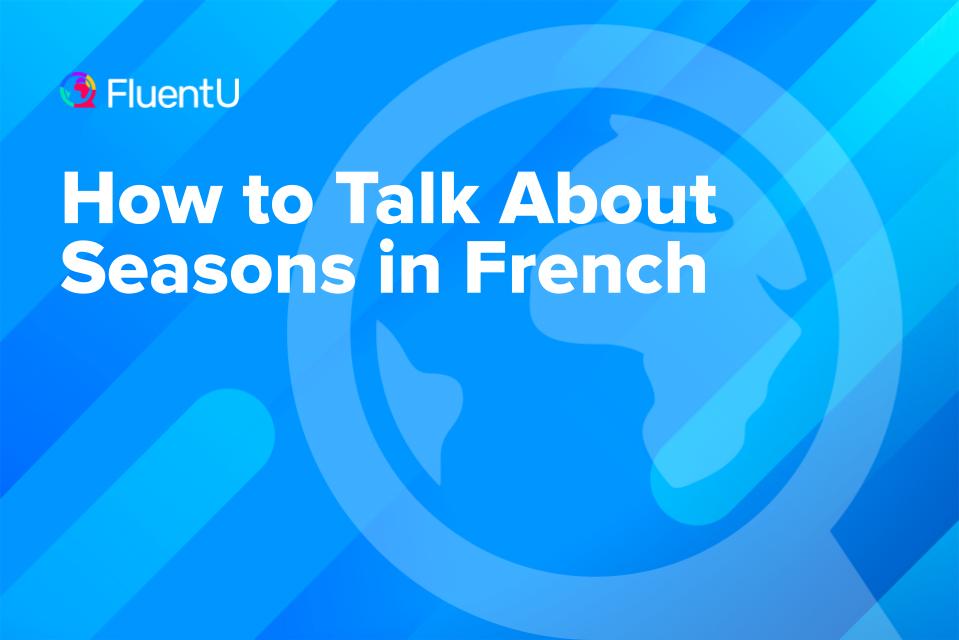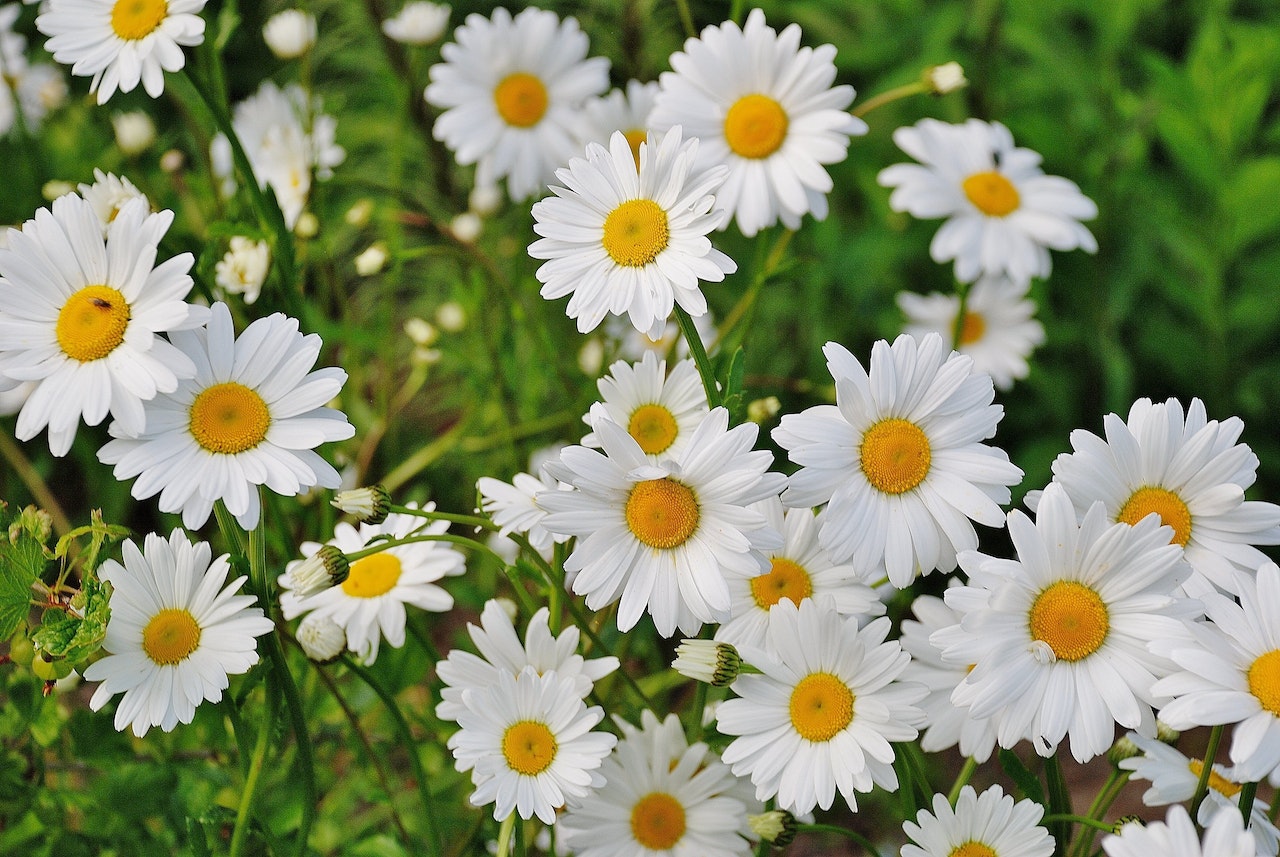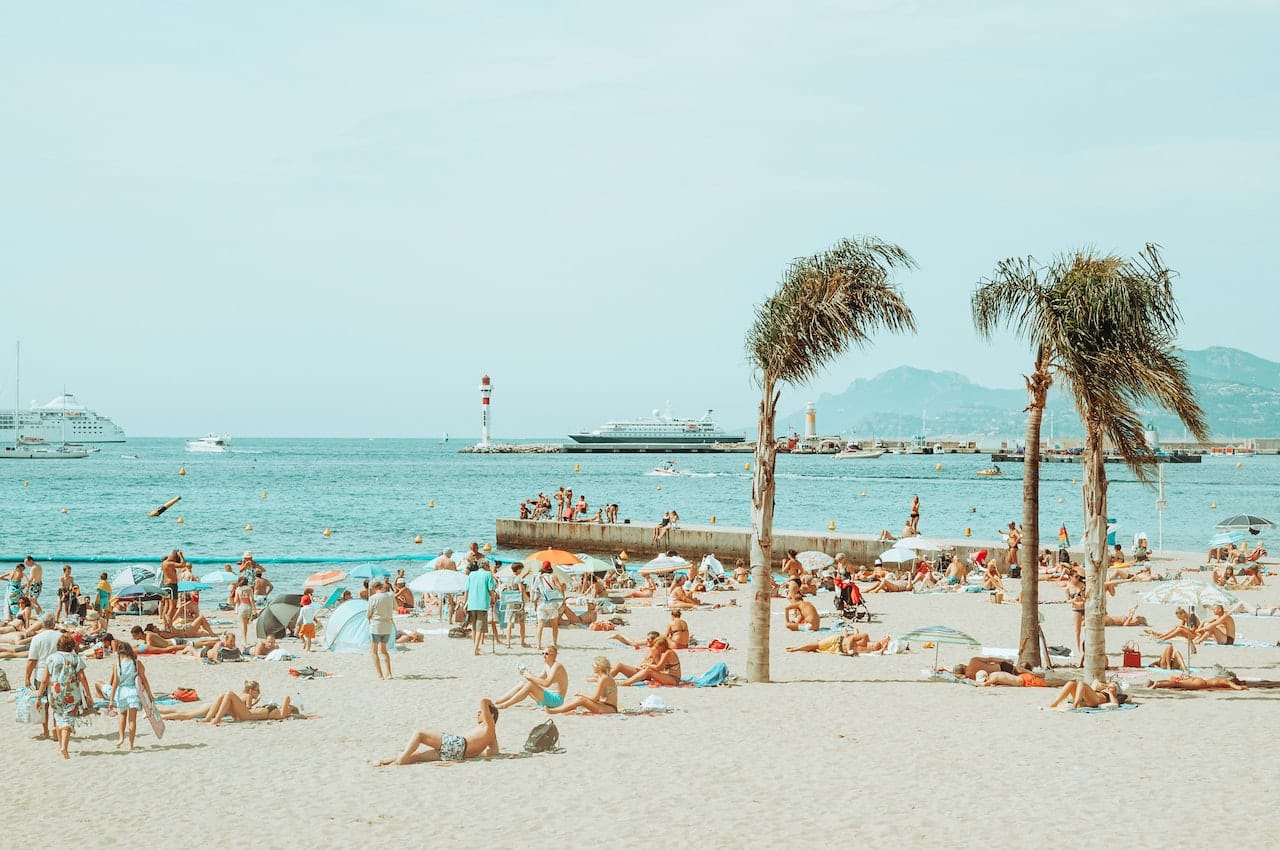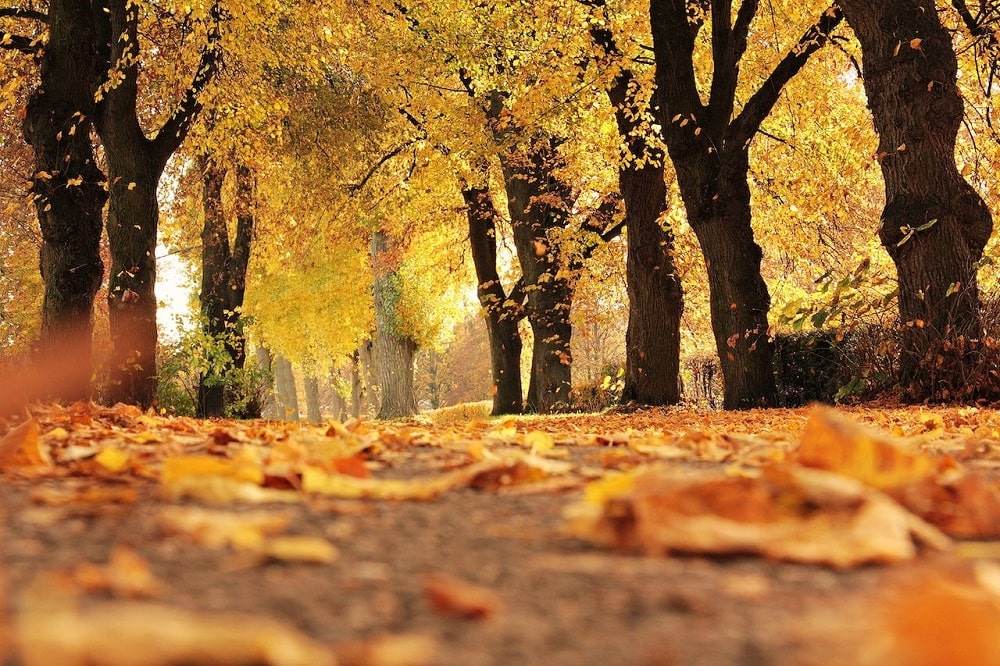How to Talk About Seasons in French

If you want to talk about the weather or time of year in French, knowing how to talk about the seasons is essential.
A season in French is translated as une saison , and there are four distinct seasons in France: le printemps (spring), l’été (summer), l’automne (autumn/fall) and l’hiver (winter).
Keep reading to find out how to talk about seasons in French, with the names of the seasons themselves, as well as plenty of season-related vocabulary.
Download: This blog post is available as a convenient and portable PDF that you can take anywhere. Click here to get a copy. (Download)
How to Say the Seasons in French
Below is a look at the names of the seasons in French:
| French | English |
|---|---|
| l'hiver | the winter |
| le printemps | the spring |
| l'été | the summer |
| l'automne | the autumn (also: fall) |
To talk about the seasons themselves, use a direct article. For example:
L’hiver est froid.
Winter is cold.
Ma saison préférée est l’automne.
My favorite season is autumn.
On the other hand, using these seasons with the prepositions en or au gives them the meaning of “in the” or “during the.” These prepositions are useful if you want to talk about things that happen during a certain season:
| French | English |
|---|---|
| au printemps | in the spring |
| en hiver | in the winter |
| en été | in the summer |
| en automne | in the autumn (in the fall) |
Note that printemps is the only season to take au (literally translated as “to the”). The other three seasons all take en (in):
Les canards reviennent au printemps.
The ducks return in the spring.
J’irai en Europe en été.
I will go to Europe in the summer.
Vocabulary for L’hiver (Winter)

L’hiver in France typically consists of the months of janvier , février and mars (January, February and March). This time of year is characterized by cooler weather and even snow in the northern or mountainous regions of the country.
Let’s check out some common vocabulary associated with l’hiver.
| French | English |
|---|---|
| la neige | snow |
| le bonhomme de neige | snowman |
| la boule de neige | snowball |
| la glace | ice |
| le froid | the cold |
| Il fait froid. | It is cold. |
| J'ai froid. | I am cold. |
| le patin à glace | ice skating |
| le ski | skiing |
| faire du ski | to ski |
| le snowboard | snowboarding |
| le glaçon | icicle |
| les gants | gloves |
| le bonnet | hat |
| le manteau | coat |
| les bottes | boots |
To see these words in action, let’s use a couple of them in a few example sentences:
En hiver, je porte mes gants, mon chapeau et mon manteau. Il fait froid et il y a beaucoup de neige. Je fais du ski et du snowboard.
During the winter, I wear my gloves, my hat and my coat. It is cold, and there is a lot of snow. I ski and snowboard.
Vocabulary for Le Printemps (Spring)

Le printemps typically consists of the months of avril , mai and juin (April, May and June). This is the time of year when the weather starts to warm up and plants begin to grow again, filling the landscape with green trees and beautiful flowers.
Here’s some common vocabulary associated with le printemps:
| French | English |
|---|---|
| la fleur | flower |
| la tulipe | tulip |
| le papillon | butterfly |
| la pluie | rain |
| le parapluie | umbrella |
| l'arc-en-ciel | rainbow |
| un oiseau | bird |
| une abeille | bee |
| le nuage | cloud |
| Il fait frais. | It is cool. |
| un imperméable | a raincoat |
Now let’s use a couple of these words in a sample paragraph:
Au printemps, les oiseaux retournent du sud. Il fait frais et il y a beaucoup de pluie. Je porte un imperméable et j’adore toutes les fleurs.
During the spring, the birds return from the south. It is cool, and there is a lot of rain. I wear a raincoat, and I love all the flowers.
Vocabulary for L’été (Summer)

L’été typically consists of the months of juillet , août and septembre (July, August and September). Like in North America, l’été is the hottest time of the year. As such, students are often on summer holidays, and people are social with lots of outdoor activities and parties.
Let’s look at some common vocabulary to celebrate l’été:
| French | English |
|---|---|
| le soleil | sun |
| la chaleur | heat |
| Il fait chaud. | It is hot. |
| J'ai chaud. | I am hot. |
| la canicule | heatwave |
| la tempête | storm |
| la plage | beach |
| la crème solaire | sunscreen |
| la piscine | pool |
| nager | to swim |
| les lunettes de soleil | sunglasses |
| le maillot de bain | swimsuit |
| la pastèque | watermelon |
| le short | shorts |
| les sandales | sandals |
| les tongs | flip-flops |
| le parasol | beach umbrella |
| les vacances | vacation |
Now, let’s set the scene for a hot and relaxing summer day:
En été, je vais souvent à la plage. Je porte mon maillot de bain, mes tongs et mes lunettes de soleil. J’aime nager et manger de la pastèque.
During the summer, I often go to the beach. I wear my swimsuit, my flip-flops and my sunglasses. I like to swim and eat watermelon.
Vocabulary for L’automne (Fall)

L’automne typically consists of the months of octobre , novembre and décembre (October, November and December). During this time of year, the leaves on the trees begin to change colors and fall, and the weather becomes cool again.
Some common vocabulary associated with l’automne is:
| French | English |
|---|---|
| un arbre | tree |
| la feuille | leaf |
| un tas de feuilles | a pile of leaves |
| le changement de couleur des feuilles | the changing color of the leaves |
| la citrouille | pumpkin |
| tailler une citrouille | to carve a pumpkin |
| le vent | wind |
| la rentrée | return to school |
| un pull | sweater |
| la récolte | harvest |
| un râteau | rake |
| un coupe-vent | a windbreaker |
| la tarte aux pommes | apple pie |
| le maïs | corn |
During the autumn, you might say the following:
En automne, on voit le changement de couleur des feuilles. Je mange la tarte aux pommes et du maïs. Je porte un coupe-vent et je taille une citrouille.
During the autumn, we see the changing of the leaves. I eat an apple pie and some corn. I wear a windbreaker, and I carve a pumpkin.
FluentU takes authentic videos—like music videos, movie trailers, news and inspiring talks—and turns them into personalized language learning lessons.
You can try FluentU for free for 2 weeks. Check out the website or download the iOS app or Android app.
P.S. Click here to take advantage of our current sale! (Expires at the end of this month.)
How to Practice Seasons in French
Here are some of the best practice resources available around the web:
- To practice the months of the year in French, check out this interactive quiz from Digital Dialects.
- Take this test with French Circles to practice seasons in French and their corresponding weather words. French Circles also offers a reading and video related to the seasons in French, plus digital flashcards for extra practice.
- Sporcle offers a straightforward quiz that tests you on weather conditions and seasons in French. Simply translate the English word or expression into French before the timer runs out.
A good base of French vocabulary is always in season. Now go forth and use your newly-acquired vocabulary to talk about any season in French!
Download: This blog post is available as a convenient and portable PDF that you can take anywhere. Click here to get a copy. (Download)
And One More Thing...
If you like learning French at your own pace and from the comfort of your device, I have to tell you about FluentU.
FluentU makes it easier (and way more fun) to learn French by making real content like movies and series accessible to learners. You can check out FluentU's curated video library, or bring our learning tools directly to Netflix or YouTube with the FluentU Chrome extension.
One of the features I find most helpful is the interactive captions—you can tap on any word to see its meaning, an image, pronunciation, and other examples from different contexts. It’s a great way to pick up French vocab without having to pause and look things up separately.
FluentU also helps reinforce what you’ve learned with personalized quizzes. You can swipe through extra examples and complete engaging exercises that adapt to your progress. You'll get extra practice with the words you find more challenging and even be reminded you when it’s time to review!
You can use FluentU on your computer, tablet, or phone with our app for Apple or Android devices. Click here to take advantage of our current sale! (Expires at the end of this month.)











